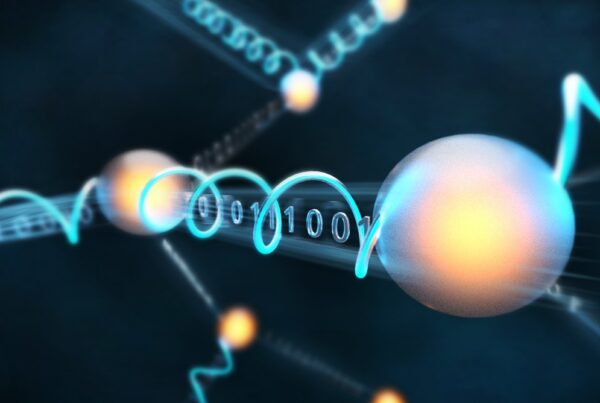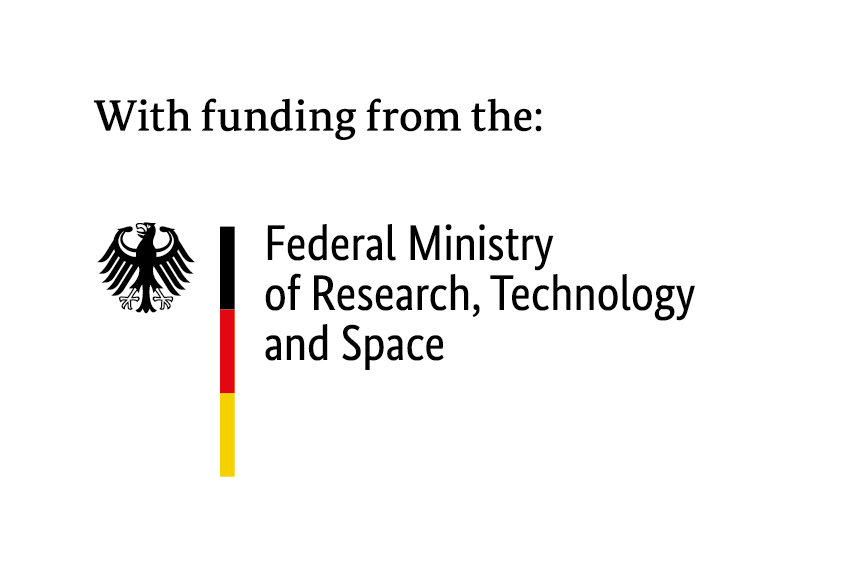
TU Munich
Shared entanglement is widely acknowledged as the key enabler to future quantum information processing tasks. Yet, from a technological perspective, it has remained largely unclear how exactly one should approach the transfer from ideas and laboratory experiments to actual technology. In particular this is true for the domain of quantum communication.
To find answers to multidisciplinary questions connecting theory, experiment and network design, this interdisciplinary workshop focusses on entanglement as a resource assisting classical communication systems. We welcome participants from academic institutions, research labs and industry. Selected approaches to entanglement-assisted communication will be presented, along with established communication models in classical networking.
This workshop is organized together with the ICSSUR 2023, which takes place the week after from June 26 to June 30.
Programme
Schedule and Booklet of Abstracts Download
Monday : Integrated photonics for quantum communication
08:30 – Welcome
09:00 Integrated photonics in optical link technology – implementations, efficiency, bottle-necks and future trends (L. Zimmermann)
09:40 Integrated superconducting nanowire single-photon detectors for photonic quantum technologies (K. Müller)
—coffee break—
10:40 Dynamics of Deterministic Quantum-Light Generation (Friedrich Sbresny)
11:20 Nonlinearity in Quantum Information: Modelling and Applications (Shahram Dehdashti)
12:00 Ultra Low-loss Silicon Nitride Photonic Integrated Circuits: Fabrication and Application (Xingchen Ji)
—lunch—
14:00 Integrated Nonlinear Photonics for Photon-Pair Generation (Kambiz Jamshidi)
14:40 Learning optimal decoders for fiber communication at the quantum limit (Matteo Rosati)
15:20 Beam shaping and steering with integrated photonics (You-Chia Chang)
—coffee break—
16:20 Integrated Photonics Applied for Quantum Optics (Ming Chang Lee)
17:00 Integrated Lithium Niobate Photonic Quantum Sources (Yen-Hung Chen)
Tuesday : Security
08:30 Welcome
09:00 Post-quantum security schemes (Tutorial by Georg Maringer)
—coffee break—
10:40 Network provider perspective on secure communication (Marc Geitz)
11:20 Quantum key distribution and beyond: Identity authentication and direct communication using entanglement and entanglement routing (Anirban Pathak)
12:00 Integration and implementation advances in entanglement-based QKD (Adria Sansa Perna)
—lunch break—
14:00 Generating entangled photonic resource states for quantum network applications with color centers in diamond (Gregor Pieplow)
14:40 New qantum resources for quantum communication from quantum hardware security (Mina Doosti)
15:20 A Simple and Tighter Derivation of Achievability for Classical Communication over Quantum Channels (Hao Chung Cheng)
—coffee break—
16:20 Distributed quantum computing with entanglement-assisted gate teleportation (Jun-Yi Wu)
17:00 Zero-probability constraints to the Clauser-Horne-Shimony-Holt nonlocal game (Gelo Noel Tabia)
Wednesday : Network Perspective
09:00 Quantum enhancements for classical communications (Saikat Guha)
09:40 Quantum repeater models and protocols including or excluding quantum memories (Peter Van Loock)
—coffee break—
10:40 Ultra-Broadband Optical Wavelength-Conversion in Nonlinear Multi-Modal Silicon-On-Insulator Waveguides (Norbert Hanik)
11:20 Non-Local and Quantum Advantages in Network Coding for Multiple Access Channels (Ashutosh Rai)
12:00 Nonlocal network coding in interference channels based on Clauser-Horne-Shimony-Holt game (Jiyoung Yun)
—lunch break—
14:00 General Distance Balancing for Quantum Locally Testable Codes (Min-Hsiu Hsieh)
14:40 High-performance quantum memory based on electromagnetically induced transparency (Ying-Cheng Chen )
15:20 Complete classification of steerability under local filters and its relation with measurement incompatibility (Ku Huan-Yu)
—coffee break—
16:20 Cs-Rb mixed-atoms for femtosecond Ti:S comb laser stabilitization (Wang-Yau Cheng)
17:00 Towards Entanglement Distribution in a Quantum Network (Chih-Sung Chuu)
Thursday
social event
Friday : Information Theory
Location for Fridays talks is the Hon Hai Quantum Computing Research Center @ 32 JiHu Rd., NeiHu District, Taipei City, Taiwan which you can reach with the brown metro line (get off at Xihu station, BR16)
9:30 Welcome Technical issues and overview of the day
9:40 Exploiting Analog Information In Decoding Quantum Error Correction Codes (Nithin Raveendran)
—coffee break—
10:40 Maxwell’s Demon, Information and Extracting Work from Heat (Raymond Ooi)
11:20 Identification Over Quantum Broadcast Channels (Johannes Rosenberger)
12:00 Decoupling by local random unitaries without simultaneous smoothing, and applications to multi-user quantum information tasks (Pau Saus)
—lunch—
14:00 Benefits and Detriments of Noise in Quantum Classification (Christoph Hirche)
14:40 All-photonic multiplexed quantum repeaters based on concatenated bosonic and discrete-variable quantum codes (Filip Rozpędek)
15:20 Key Assistance, Key Agreement, and Layered Secrecy for Bosonic Broadcast Channels (Roberto Ferrara)
—coffee break—
16:20 Entangelement monogamy via multivariative trace inequalities (Marco Tomamichel)
Venue
Location for Fridays talks is the Hon Hai Quantum Computing Research Center @ 32 JiHu Rd., NeiHu District, Taipei City, Taiwan which you can reach with the brown metro line (get off at Xihu station, BR16)
Location for talks on Monday, Tuesday and Wednesday is 浦大邦紀念講堂 Dr. Poe Lecture Hall in the National Taiwan University (NTU) campus. Use this link to navigate to the Dr. Poe lecture hall.
Acknowledgement
Organizers
Boulat Bash, Christian Deppe, Ray-Kuang Lee, Janis Nötzel, Uzi Pereg, Stefano Rini
This event is a joint workshop of the Emmy Noether Group “Theoretical Quantum System Design” and the Institute for Communications Engineering of Technical University of Munich (Germany) together with the Institute of Communications Engineering at National Chiao Tung University (Taiwan).
The organizers acknowledge funding by the DFG via grants NO 1129/2-1 and NO 1129/4-1 and the NSTC as well as by the Bundesministerium für Bildung und Forschung in the programme of “Souverän. Digital. Vernetzt.”. Joint project 6G-life, project identification numbers: 16KISK002 and 16KISK001K, and via the q-net-q project (16KISK168).
We further thank the MCQST for his continuous support.



